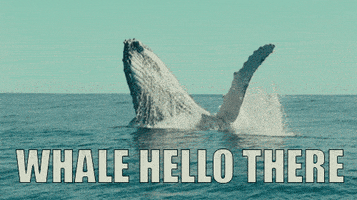- Joined
- Oct 15, 2019
- Messages
- 402
- Reaction score
- 1,671
Hi again Reef2Reef,
I used to post here a lot but have been away from forums for a couple years. I thought I'd re-introduce myself here since the community has probably grown a lot since I was here last.
I'm a professional biologist and recovering academic. I live in Oregon's beautiful Willamette Valley with my wife, 3 kids, a bunch of farm animals, and more reef tanks than I'd care to admit in polite company. (only one display tank in the house, but theres that whole greenhouse I built to house coral tanks too...)
After a couple decades in the research world using DNA sequencing to study corals and a variety of other odd creatures, I started a DNA testing company a few years aiming to bring these same methods to the aquarium hobby. We've been running samples for the reefkeeping community ever since, and this has grown into my full time job and primary source of support.
Over the past 4 years we've gathered lots of data on the microbial community in reef tanks. We've also built a database of eukaryotic parasites including those that cause some of the most common fish diseases. Some of our earliest findings I wrote up on these forums, but as we grew I ran out of time for these writeups. I hope to change that in the near future. A few teasers to share:
In some ways our findings contradict a theory many had suggested before DNA sequencing was available, that all tanks probably contain parasites like Cryptocaryon (Ich). On the other hand, we find a variety of other, sometimes unexpected parasites. There's a lot more than just Ich out there! (of course, we do find plenty of Cryptocaryon too. Especially since over the past few months we've improved the sensitivity of our tankDNA test; I suspect our estimate of ~10% prevalence will continue to climb).
When I came back to the forums I came across a few pretty negative comments about various aspects of this technology or our service. Its a new technology for reef keeping, and skepticism can be natural and appropriate when something new comes up. I would be happy to answer any questions and attempt to relieve any concerns.
We test reef tank DNA for a living. Ask me anything!
-Eli
I used to post here a lot but have been away from forums for a couple years. I thought I'd re-introduce myself here since the community has probably grown a lot since I was here last.
I'm a professional biologist and recovering academic. I live in Oregon's beautiful Willamette Valley with my wife, 3 kids, a bunch of farm animals, and more reef tanks than I'd care to admit in polite company. (only one display tank in the house, but theres that whole greenhouse I built to house coral tanks too...)
After a couple decades in the research world using DNA sequencing to study corals and a variety of other odd creatures, I started a DNA testing company a few years aiming to bring these same methods to the aquarium hobby. We've been running samples for the reefkeeping community ever since, and this has grown into my full time job and primary source of support.
Over the past 4 years we've gathered lots of data on the microbial community in reef tanks. We've also built a database of eukaryotic parasites including those that cause some of the most common fish diseases. Some of our earliest findings I wrote up on these forums, but as we grew I ran out of time for these writeups. I hope to change that in the near future. A few teasers to share:
- The bacteria associated with the coral disease SCTLD appear to be causing disease in Acropora and other SPS in the hobby, but some of our clients have promising data on a possible treatment
- We're finding Myxozoans, an unexpected group of fish parasites that hadnt previously been discussed much in the hobby - the jury's still out on whether they're causing fish mortality in the hobby, but they're a nasty parasite in fish aquaculture...
- We've come across a variety of other interesting parasites like the Amoeba that cause Amoebic Gill Disease, or the toxic dinoflagellates Pfiesteria
In some ways our findings contradict a theory many had suggested before DNA sequencing was available, that all tanks probably contain parasites like Cryptocaryon (Ich). On the other hand, we find a variety of other, sometimes unexpected parasites. There's a lot more than just Ich out there! (of course, we do find plenty of Cryptocaryon too. Especially since over the past few months we've improved the sensitivity of our tankDNA test; I suspect our estimate of ~10% prevalence will continue to climb).
When I came back to the forums I came across a few pretty negative comments about various aspects of this technology or our service. Its a new technology for reef keeping, and skepticism can be natural and appropriate when something new comes up. I would be happy to answer any questions and attempt to relieve any concerns.
We test reef tank DNA for a living. Ask me anything!
-Eli




















